AITA for only buying my parents stuff that cannot be shared or taken while my brother and his family live with us?
Family dynamics can be as complicated as they are heartwarming—especially when it comes to sharing, giving, and setting boundaries. Our OP, a 28‑year‑old living rent‑free in his parents’ loft, pours his heart into caring for his aging parents by doing groceries, cooking meals, and even planning special outings.
Yet, when his brother—who lives with his wife and children in the basement suite—starts questioning why he doesn’t leave groceries where everyone can share them or why he stopped gifting his parents, tensions flare. Instead of sharing his thoughtful gifts, his brother and his family seem intent on mooching off him, sparking a conflict that pits familial entitlement against individual generosity.
In a world where kindness and support should go hand in hand, our OP finds himself forced to defend his actions. Despite his busy schedule—working full-time, volunteering at a cat rescue, performing in theater sports, and even caring for his grandmother—he continues to help his parents.
But his brother’s attitude, which dismissively labels his careful decisions as “being a little b**ch,” has left our OP not only frustrated but also questioning the fairness of the arrangement. The resulting family strife has even upset their parents, leading to a full-blown debate about responsibility and entitlement.

‘AITA for only buying my parents stuff that cannot be shared or taken while my brother and his family live with us?’
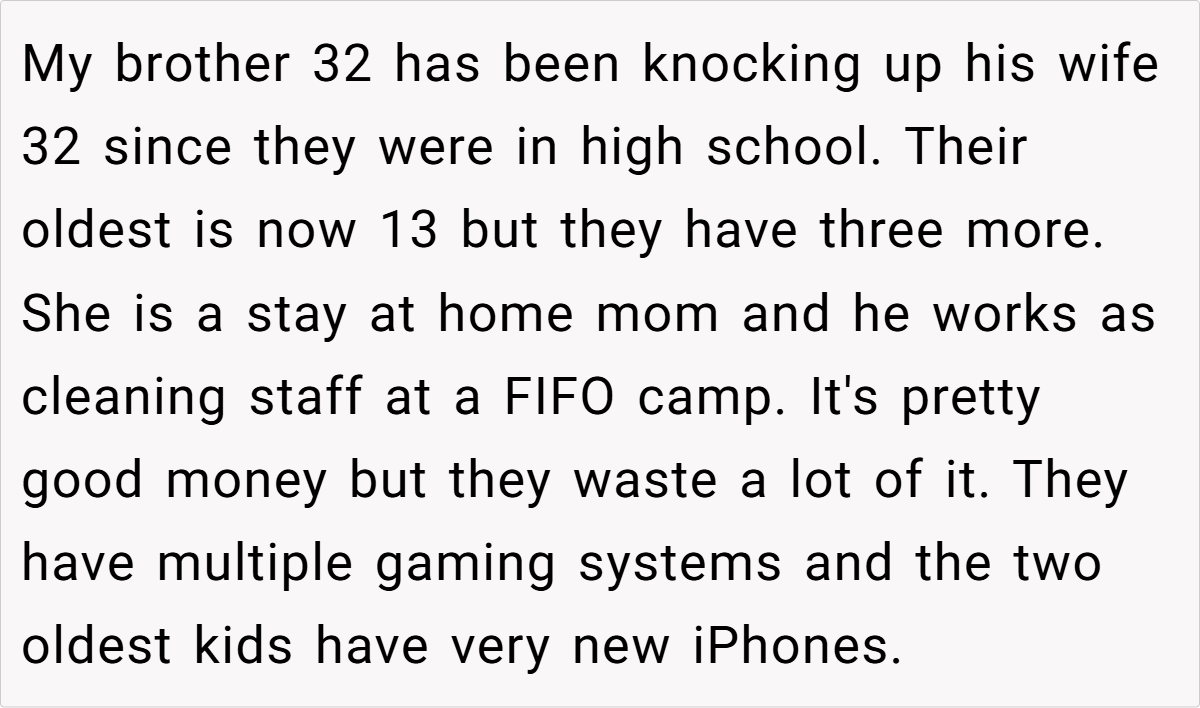
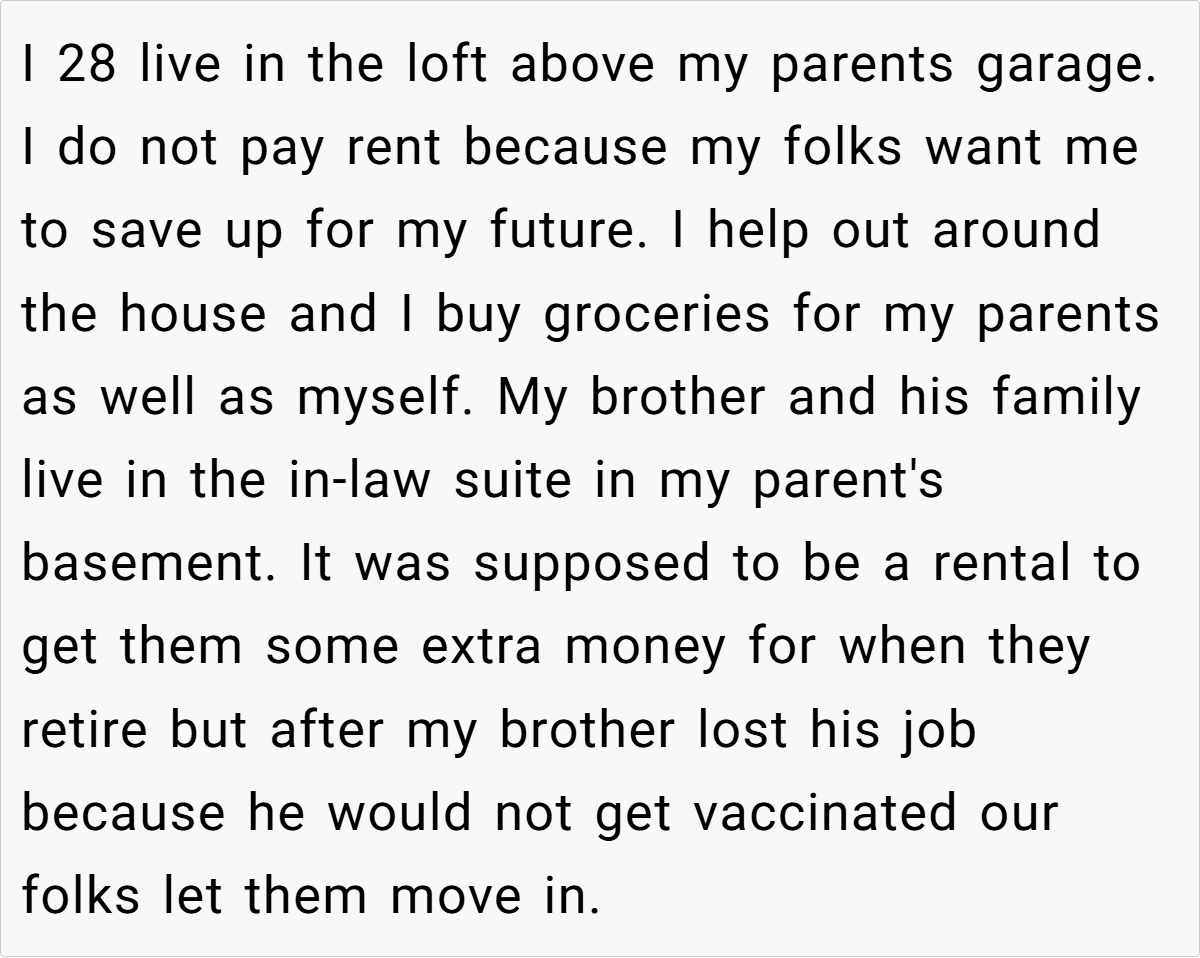
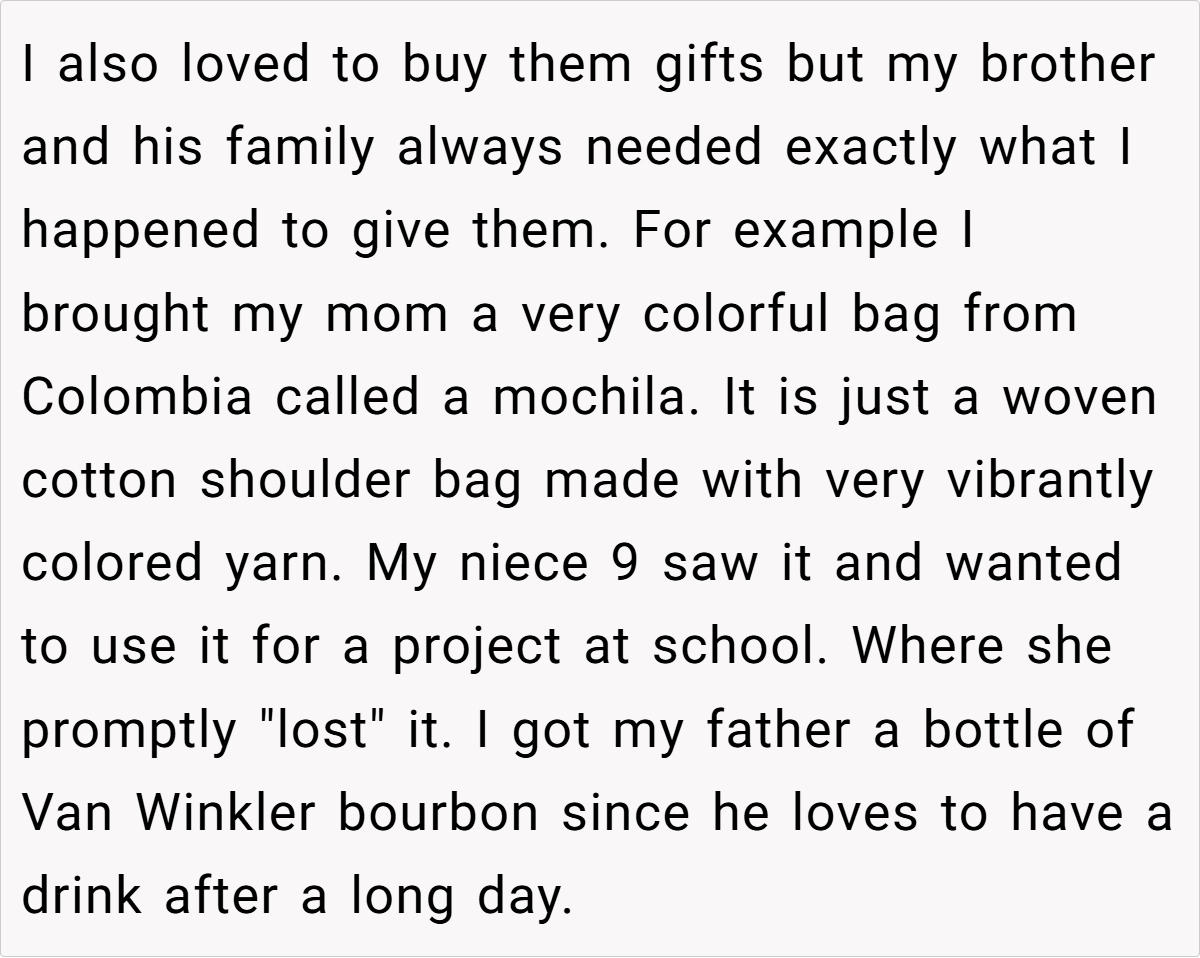
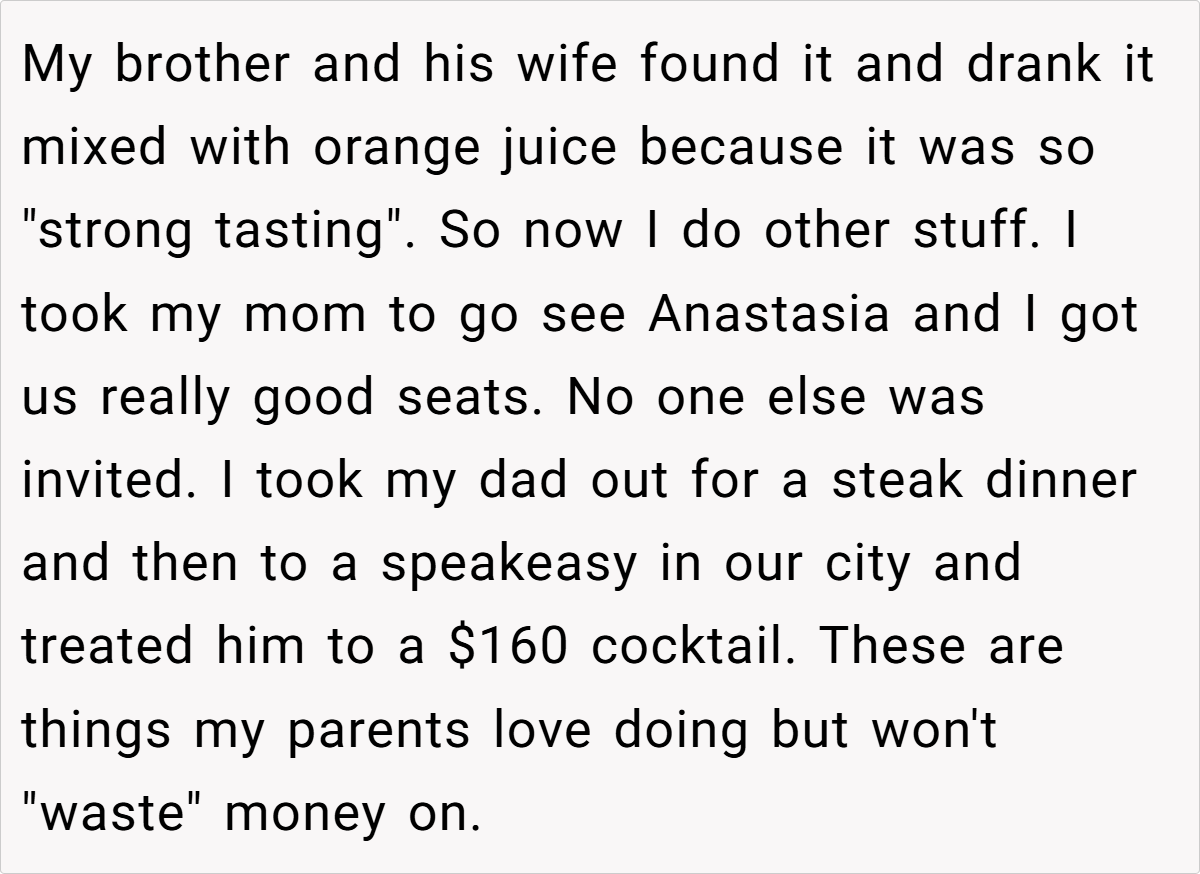
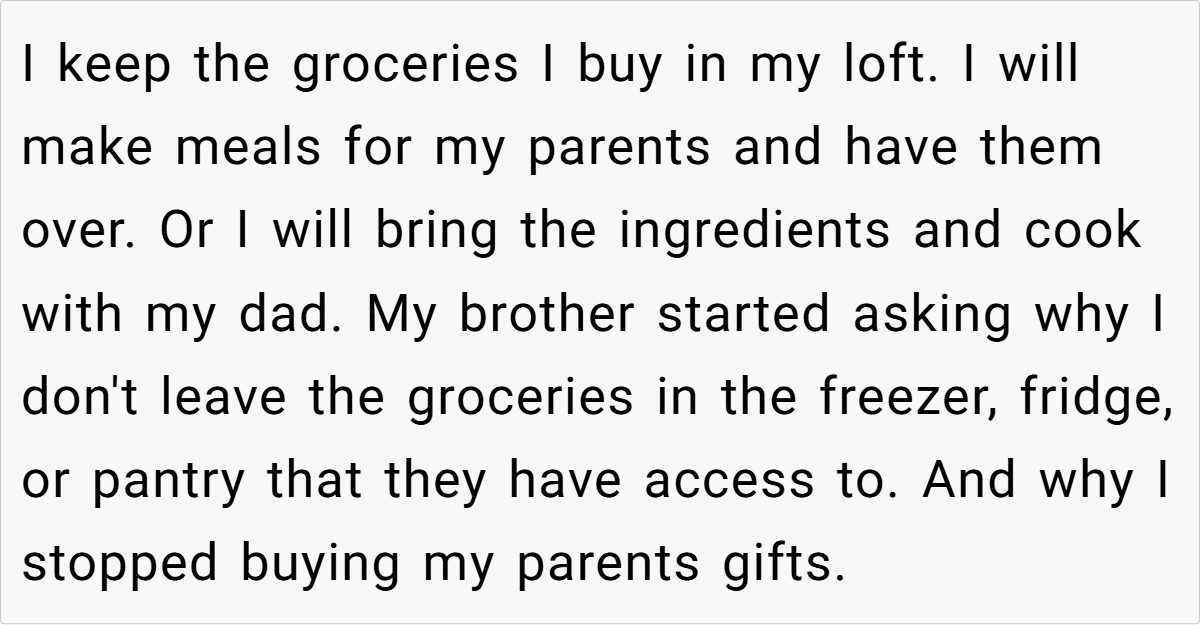
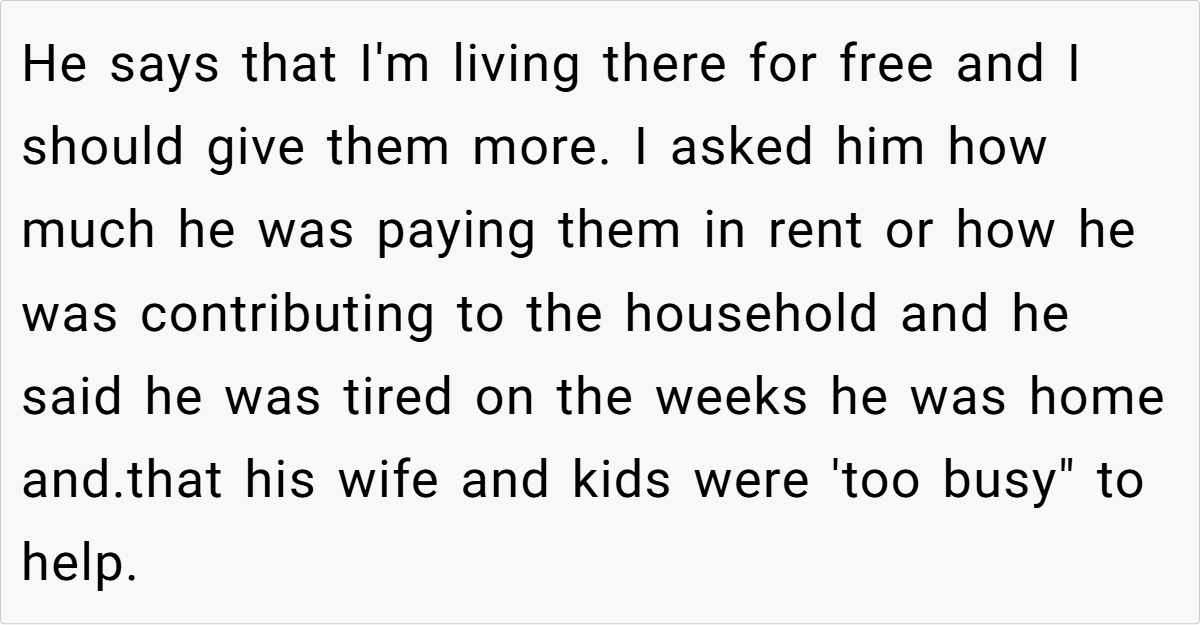
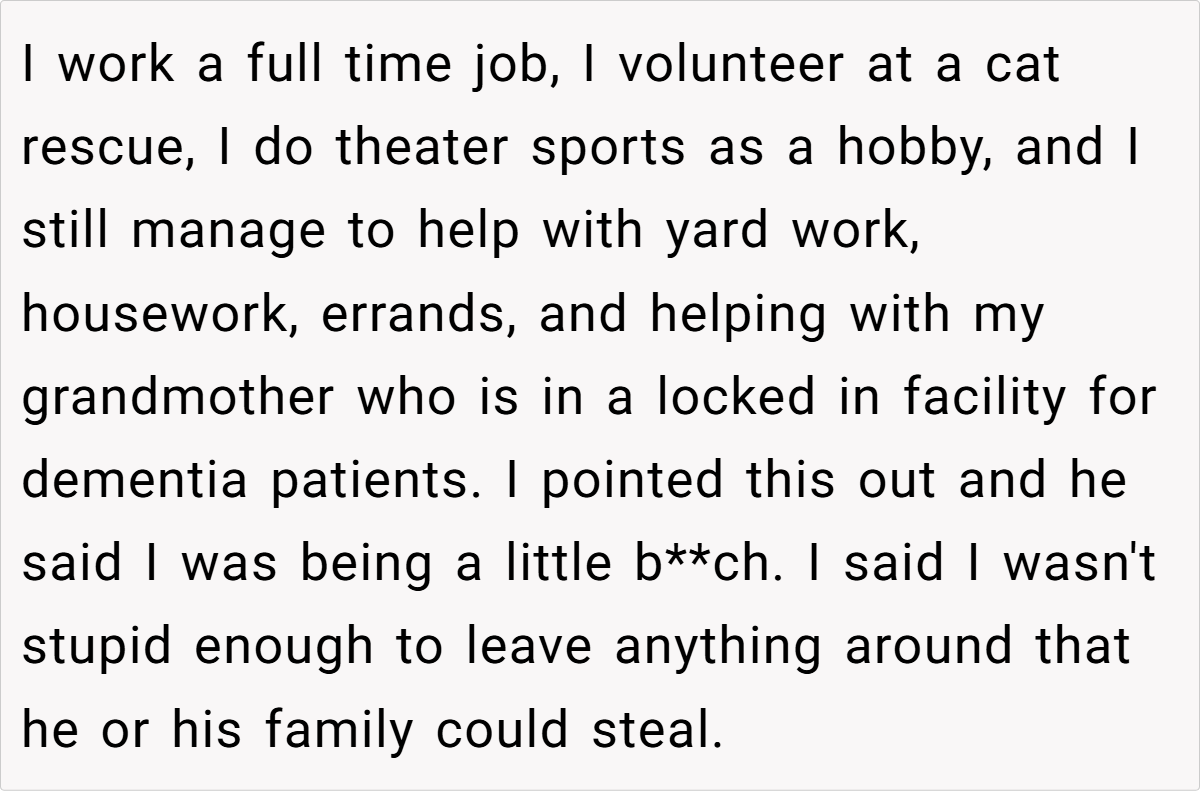
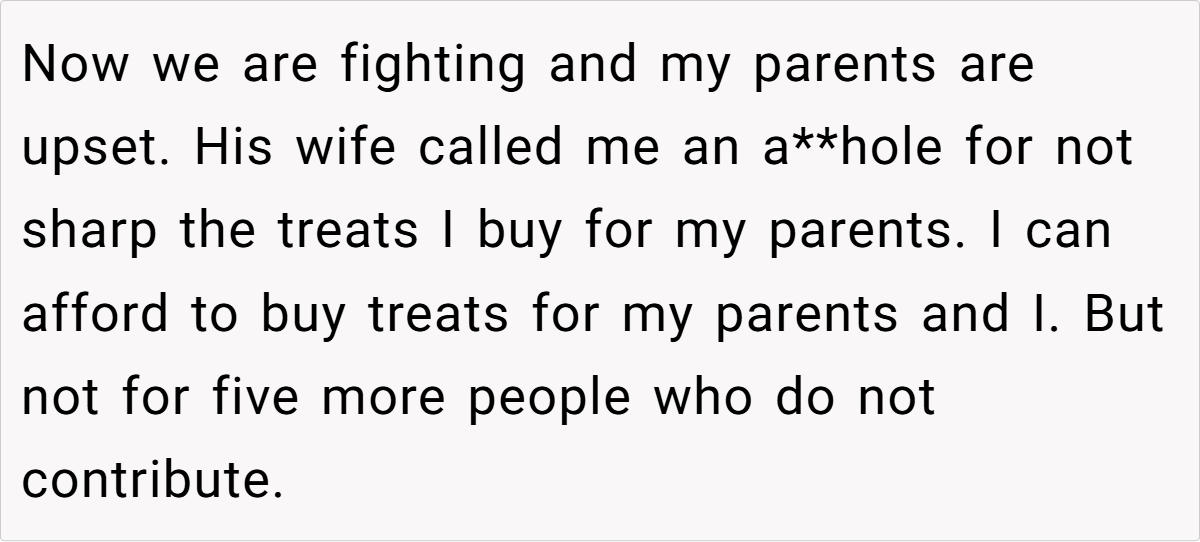
Letting family members dictate how you support your loved ones can lead to tension and misplaced expectations. Dr. Laura Markham, a clinical psychologist and parenting expert, explains, “When personal boundaries are ignored in favor of outdated entitlement, it creates resentment that can harm family relationships long term.” (Aha! Parenting). In this case, the OP’s situation highlights the pitfalls of family entitlement—where one sibling’s generosity becomes a source of contention rather than a cherished gesture.
When extended family members insist on equal distribution of gifts or resources, it can undermine the spirit of giving. The OP’s deliberate choice to keep his groceries and thoughtful gifts for his parents is a way of protecting his contribution from being diluted or “stolen.
Studies have shown that when one family member consistently bears a greater load, it can lead to feelings of exploitation and unfairness. Dr. Markham notes that “it’s important to honor your own contributions rather than let others take advantage of your generosity.” This situation reflects a broader social issue: the balance between familial duty and personal autonomy.
Moreover, the OP is clearly contributing in many ways—through daily chores, special outings, and even caring for his grandmother. His actions demonstrate that true family support isn’t measured solely by money spent or gifts given, but by the effort and care provided consistently over time.
Experts suggest that establishing firm boundaries is essential for long‑term harmony. “When one sets clear limits, it not only protects personal resources but also teaches others to respect the value of individual contributions,” says Dr. Markham. In this light, the OP’s decision to not share his carefully chosen gifts with those who do not contribute is a healthy way to safeguard his own well‑being and that of his parents.
Finally, it’s vital for families to communicate openly about expectations. The OP’s frustration stems partly from a lack of discussion regarding each person’s role in supporting the household. When one sibling works hard to support the family while others do not, it can lead to inequity that, over time, corrodes familial bonds. In such cases, clear communication and mutual respect are essential to ensure that everyone contributes fairly, without resentment.
Here’s what Redditors had to say:
Across the Reddit community, users overwhelmingly agree that the OP’s approach is both sensible and justified. Many comments highlight that if family members want to benefit from someone else’s generosity, they should be prepared to contribute themselves. A common sentiment is that the OP’s brother and his family are simply trying to mooch off his hard work and should not be entitled to his gifts.
Commenters also noted that the OP’s actions—keeping his contributions secure and refusing to share with those who don’t help—are smart strategies to avoid future conflict. Overall, the consensus is that the OP is well within his rights to protect his resources while prioritizing the care and support of his parents.

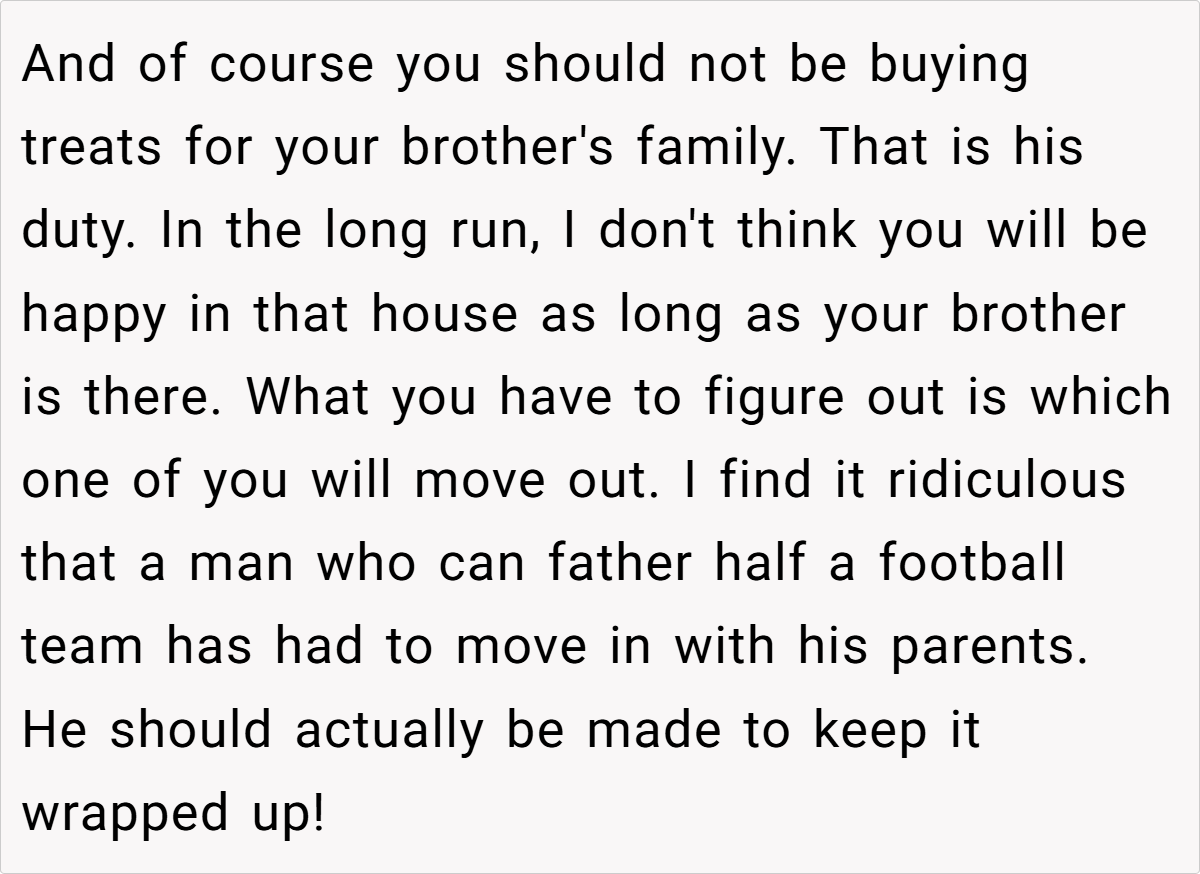
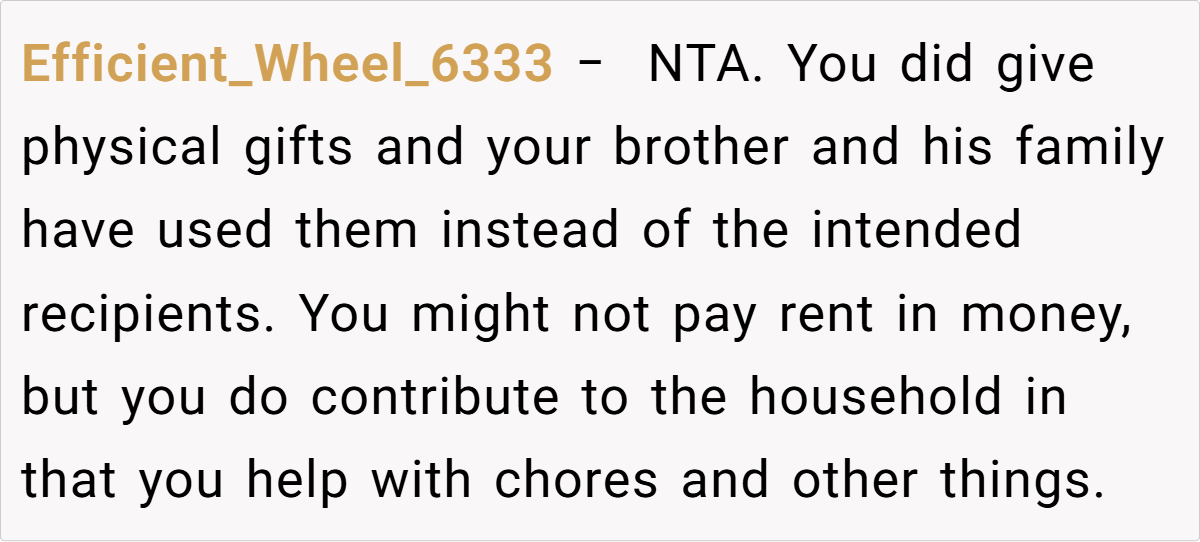
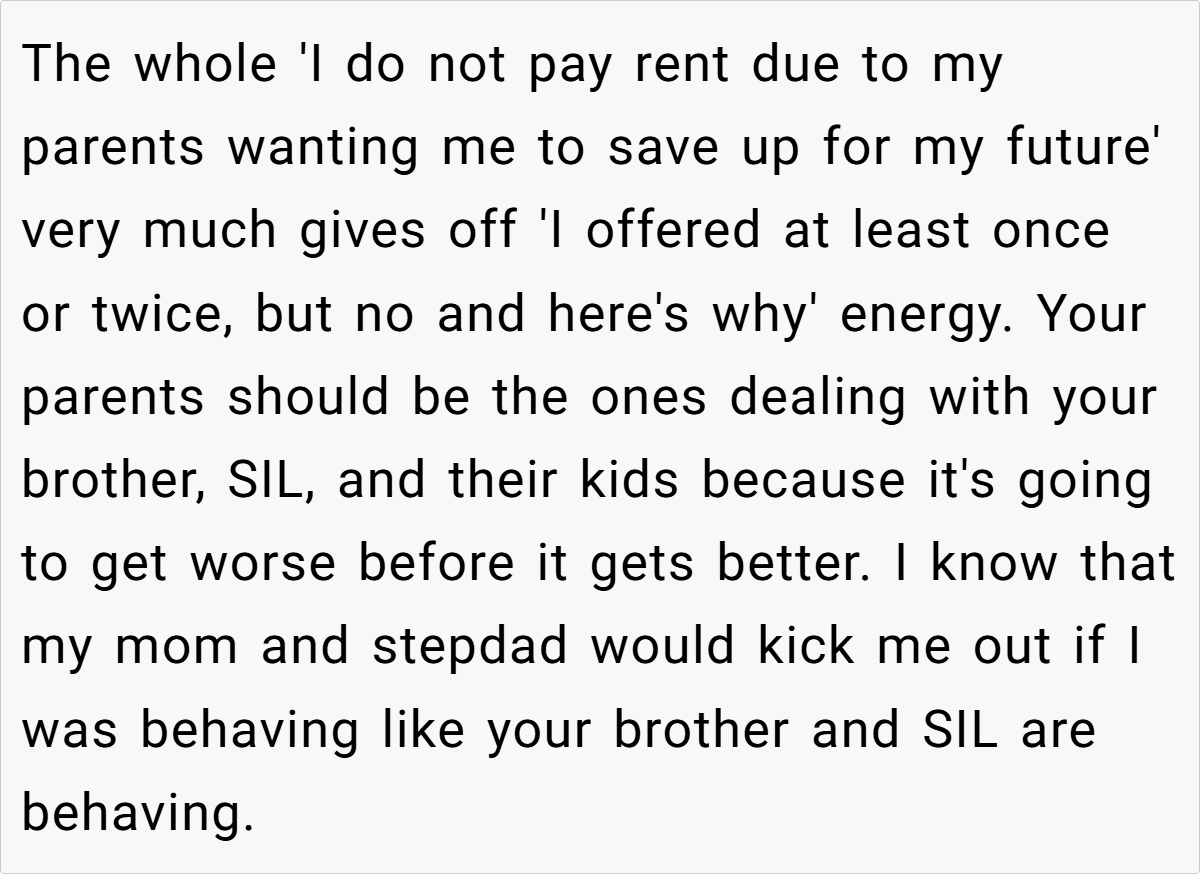


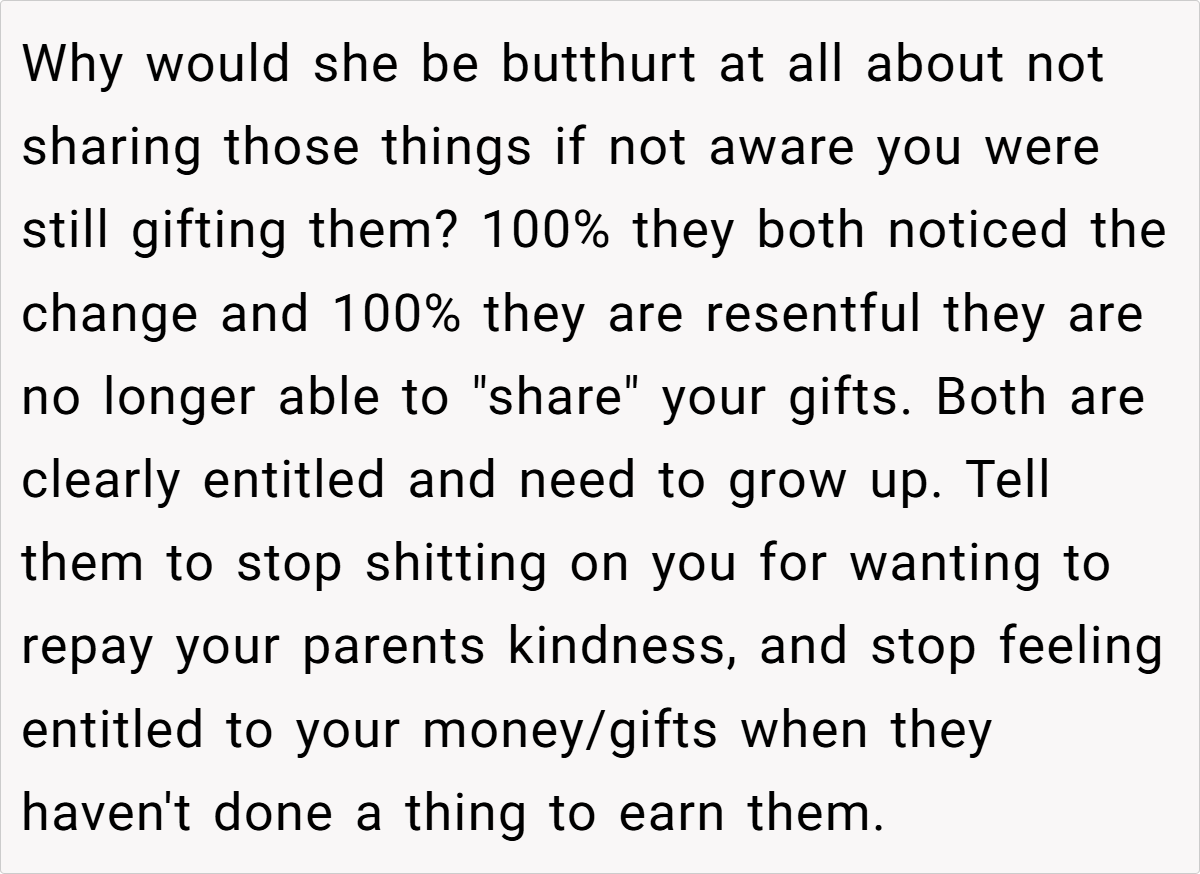
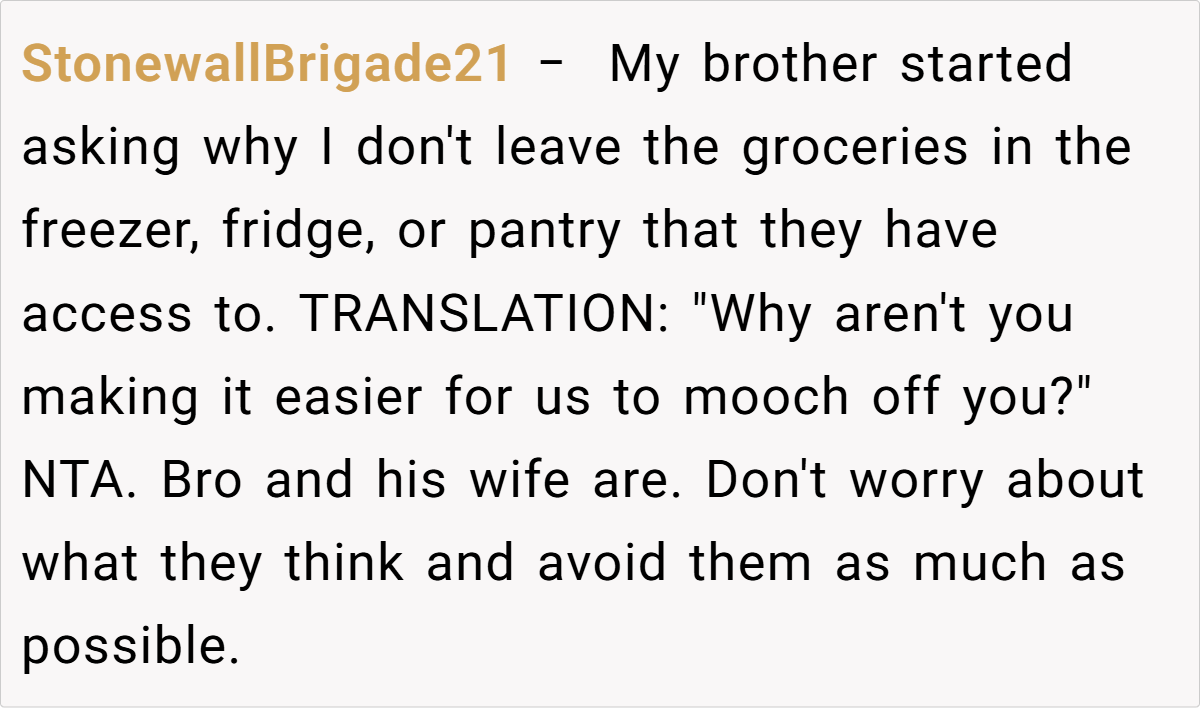

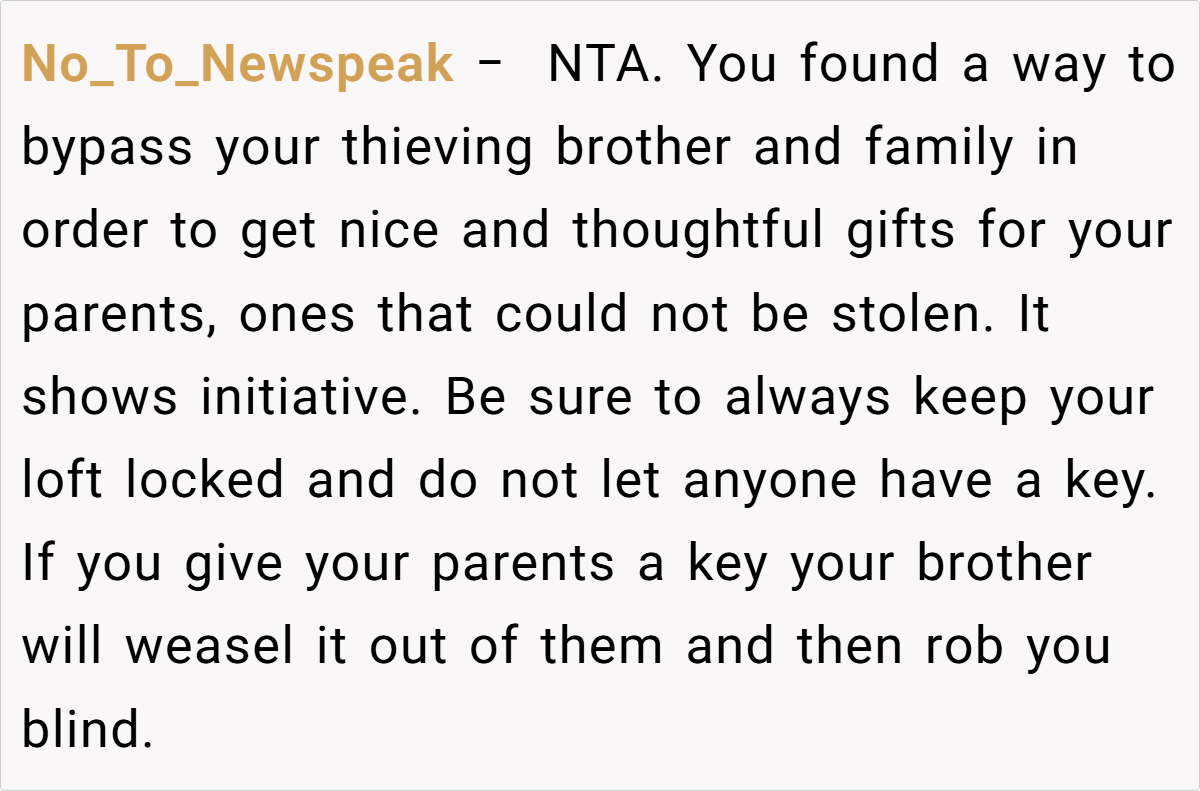
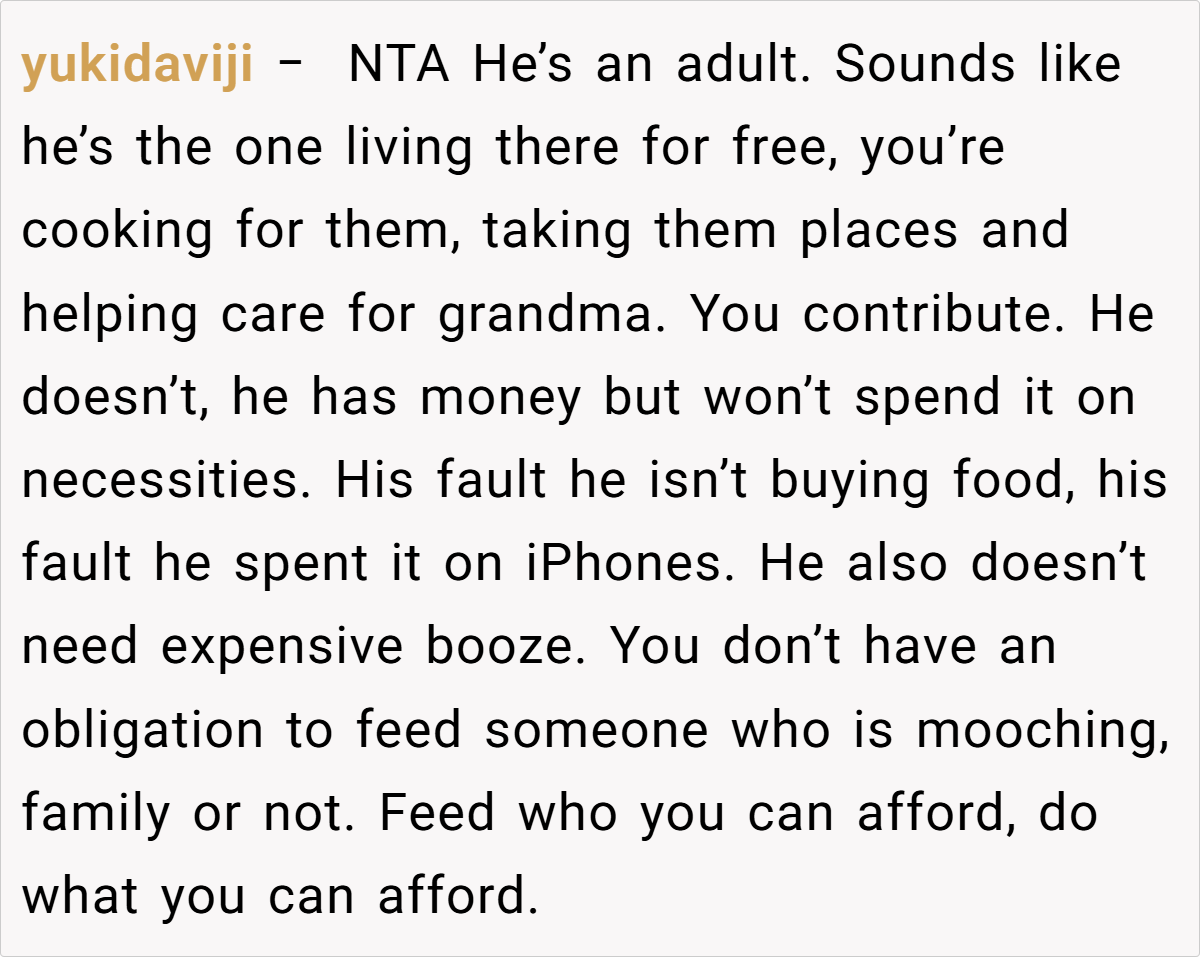

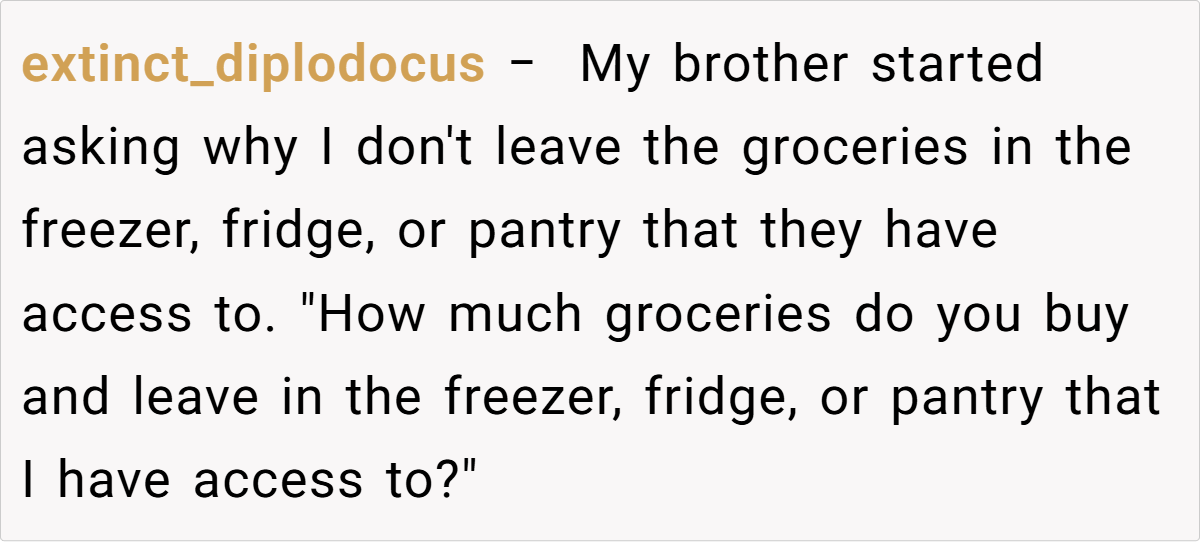
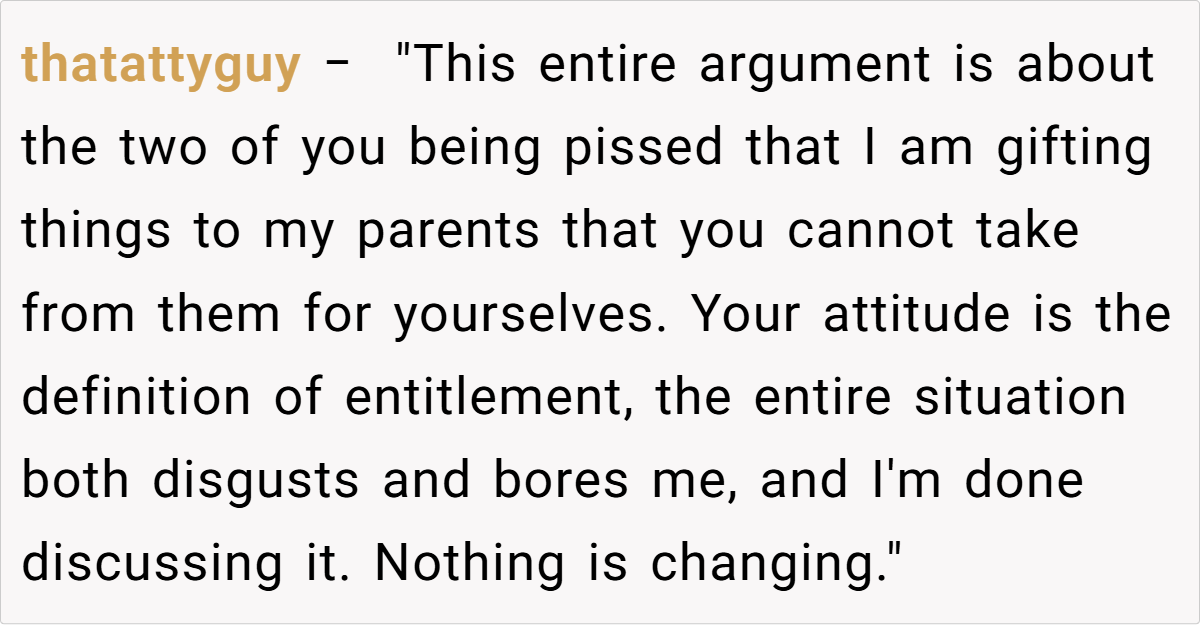
In the end, the OP’s story isn’t just about grocery arrangements—it’s about fairness, responsibility, and setting healthy boundaries in a family. By choosing to safeguard his gifts and contributions for those who genuinely need them, he has taken a stand against entitlement.
What would you do if you were caught between family expectations and your own values? How do you ensure that your generosity is respected without being exploited? Share your experiences and opinions in the comments below. We’d love to hear how you balance family obligations with personal well‑being.

